Find Help
More Items From Ergsy search
-

What is the recovery time for a hip replacement?
Relevance: 100%
-
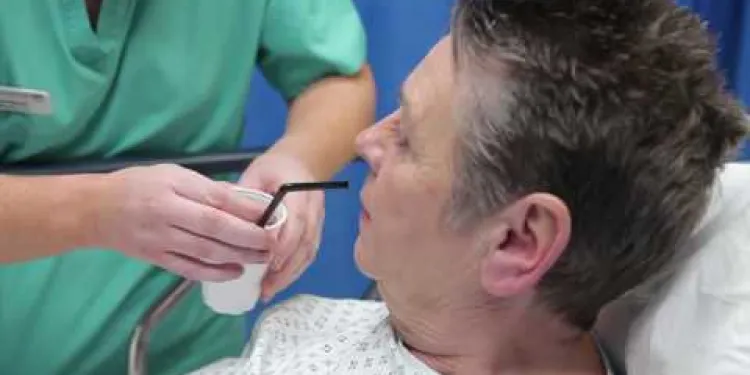
Hip replacement
Relevance: 93%
-

What is a hip replacement?
Relevance: 90%
-

Total hip replacement
Relevance: 88%
-

Total Hip Replacement
Relevance: 88%
-
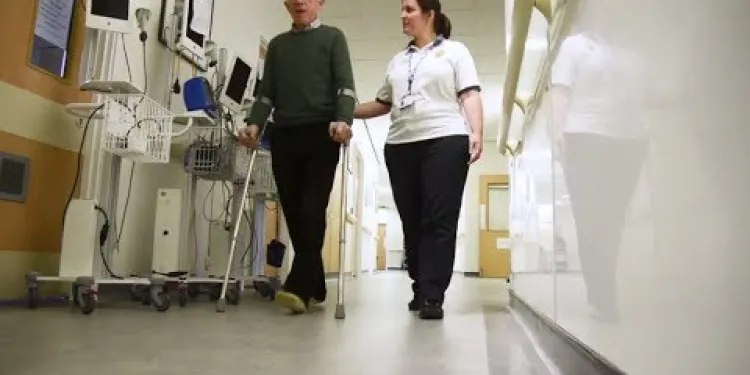
Having a hip replacement - Part Two: Recovery
Relevance: 87%
-

Do I need a Hip Replacement?
Relevance: 87%
-

Can both hips be replaced at the same time?
Relevance: 81%
-
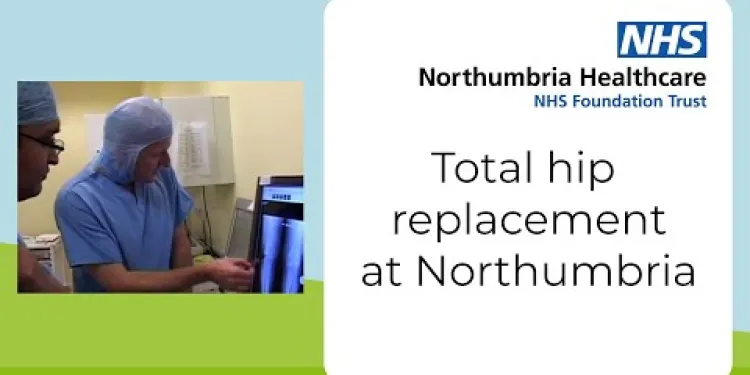
Total hip replacement at Northumbria Healthcare
Relevance: 79%
-

What is minimally invasive hip replacement surgery?
Relevance: 79%
-

How long does a hip replacement surgery take?
Relevance: 77%
-
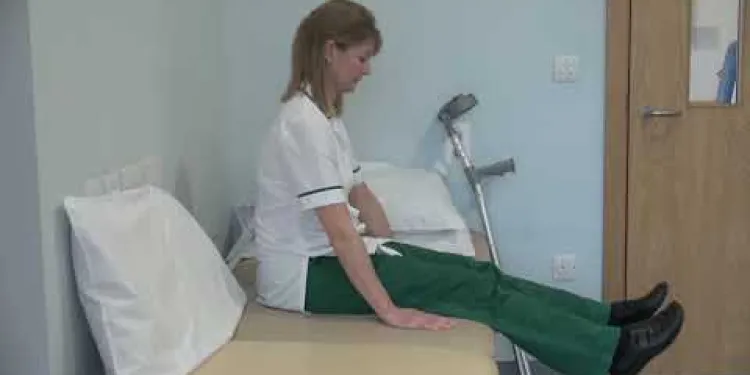
Hip replacement - getting into bed
Relevance: 76%
-
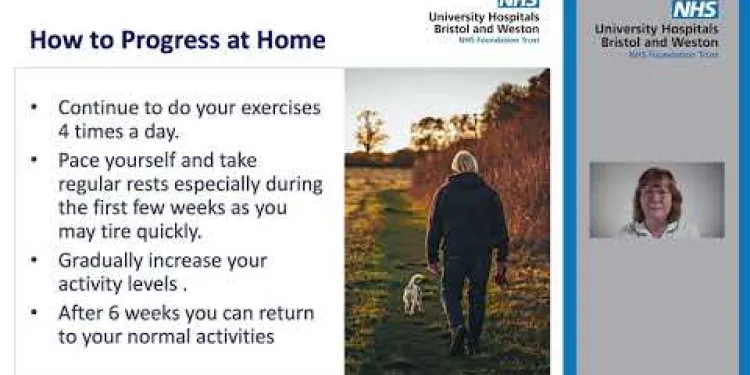
Enhanced Recovery - Hip
Relevance: 76%
-

Will I need physical therapy after a hip replacement?
Relevance: 75%
-

How do I prepare for hip replacement surgery?
Relevance: 74%
-
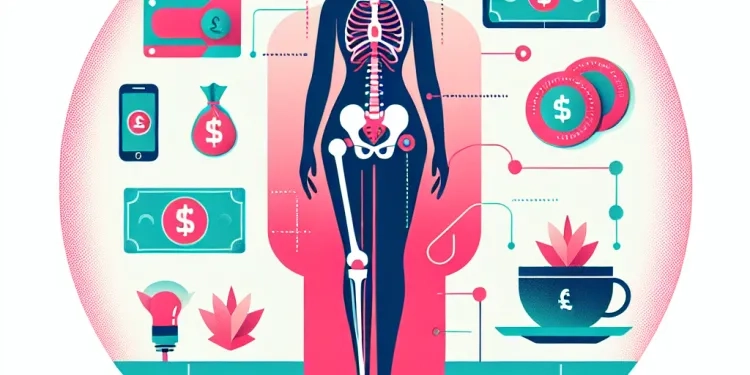
What are the risks associated with hip replacement surgery?
Relevance: 73%
-

How much does hip replacement surgery cost in the UK?
Relevance: 72%
-

What type of anaesthesia is used during hip replacement surgery?
Relevance: 72%
-

Same day discharge for NHS Golden Jubilee’s hip replacement patients
Relevance: 63%
-
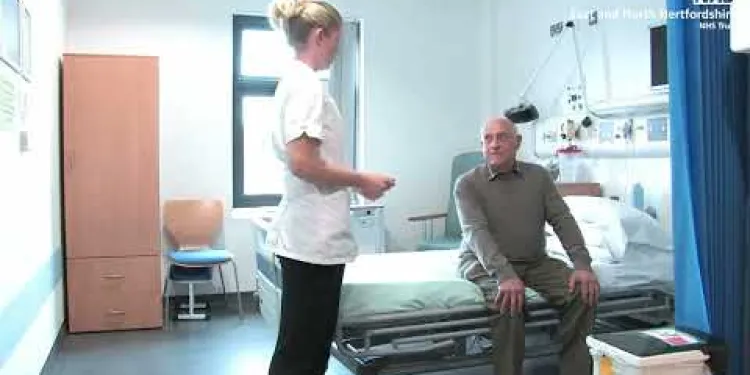
A journey to hip surgery
Relevance: 62%
-

Osteoarthritis of the Hip
Relevance: 60%
-

Your anaesthetic choices for your planned hip or knee replacement surgery at the RUH.
Relevance: 59%
-
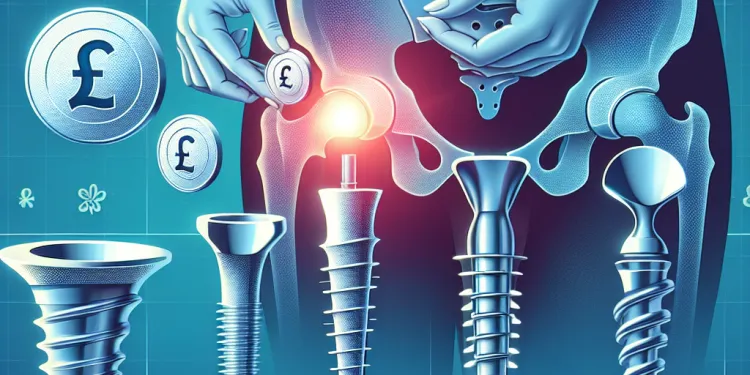
Are there different types of hip implants?
Relevance: 56%
-

Will I be able to return to normal activities after hip replacement?
Relevance: 53%
-

Osteoarthritis of the Hip
Relevance: 52%
-

How long do hip replacement implants last?
Relevance: 51%
-
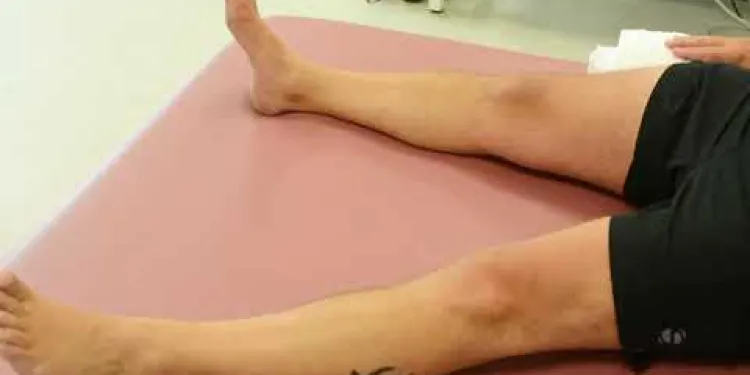
Joint School - Hip Exercises
Relevance: 50%
-
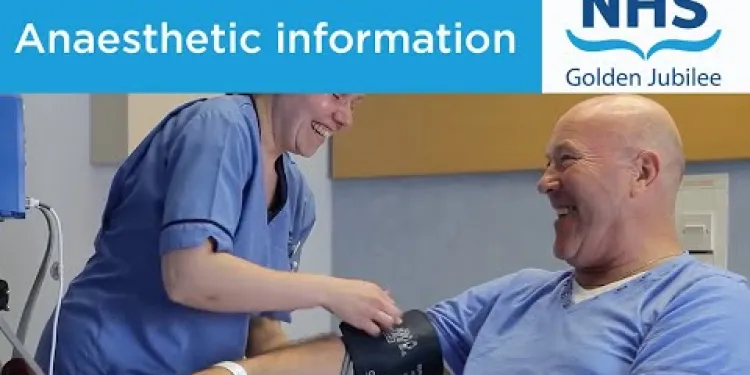
Knee replacement
Relevance: 46%
-

What can I expect during the first few weeks after hip replacement surgery?
Relevance: 44%
-

Total Knee Replacement
Relevance: 44%
-

Total knee replacement
Relevance: 43%
-
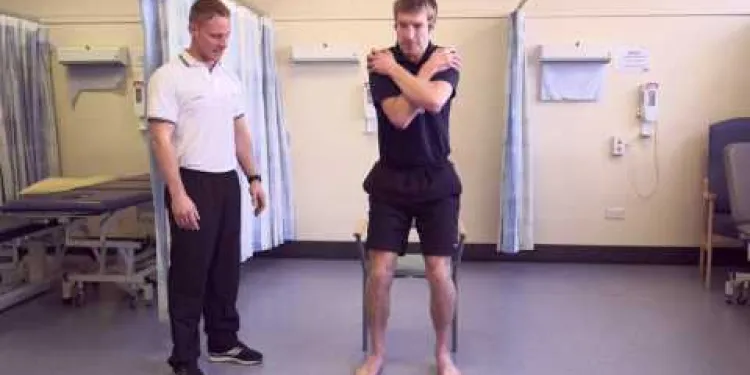
Exercises to help your lateral hip pain
Relevance: 40%
-
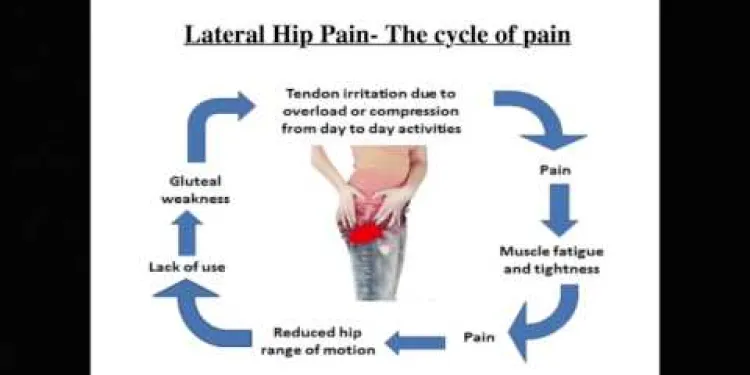
Advice - How to manage your lateral hip pain
Relevance: 39%
-
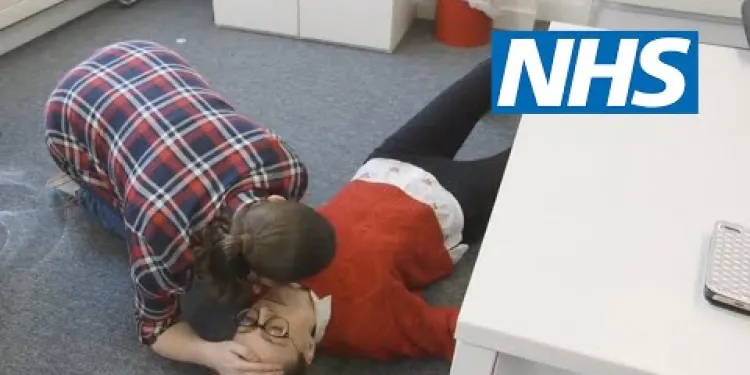
How to put someone into the recovery position | NHS
Relevance: 39%
-

Who is a candidate for a hip replacement?
Relevance: 38%
-

Enhanced Recovery YouTube
Relevance: 35%
-

What is the recovery time for a facelift?
Relevance: 32%
-
Can air physiotherapy help with COVID-19 recovery?
Relevance: 31%
-

Why is it important to update my account recovery information?
Relevance: 30%
-
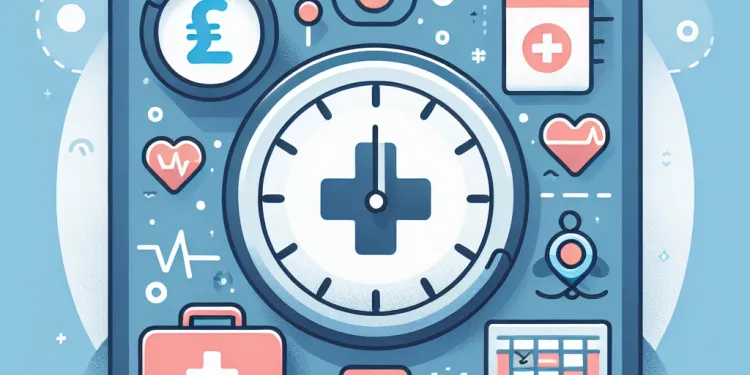
How long is the recovery time after an appendectomy?
Relevance: 30%
Having a Hip Replacement - Part Two: Recovery
Understanding the Initial Recovery Phase
The first few weeks following hip replacement surgery are critical for ensuring a successful recovery. Upon waking, you will be closely monitored by medical staff in the recovery room. Post-operative pain is managed effectively with medication, and you will be encouraged to begin moving as soon as possible. Typically, within 24-48 hours, physical therapy begins with supervised exercises aimed at restoring movement and strengthening the hip muscles. Crutches or a walker will be provided to aid in mobility, ensuring safety and improving confidence as you regain your strength.Rehabilitation and Physical Therapy
As you transition from hospital care, the focus shifts to rehabilitation. Physical therapy plays a significant role during this phase. Physiotherapists tailor programmes to fit individual needs, emphasising exercises that improve joint flexibility and muscle strength. In the UK, you may receive follow-up appointments either as an outpatient or through home visits by a physiotherapist. It's essential to adhere to their instructions and continue exercises prescribed to facilitate progress. Walking and low-impact activities become integral, gradually increasing as your endurance builds.Managing Pain and Discomfort
Pain and discomfort are natural aspects of the recovery process. While in hospital, you will be provided with medications, including painkillers and anti-inflammatory drugs. Upon discharge, your GP or surgeon will prescribe suitable medications for home use. Over time, as healing progresses, the intensity of pain should diminish. Using ice packs and maintaining prescribed medication regimes can aid greatly in managing discomfort, ensuring that you can perform daily activities with less difficulty.Post-Surgery Care at Home
When you return home, creating a safe living environment is crucial. Consider arranging furniture to ensure clear walkways and reduce risks of tripping. Installing handrails in bathrooms and using ergonomic aids, such as elevated toilet seats, can offer additional safety and ease of use. Make sure to attend all follow-up appointments, allowing your healthcare provider to track progress and address any concerns. It is also recommended to enlist help from family or friends for daily tasks during the initial weeks of recovery.Long-Term Recovery and Lifestyle Adjustments
Full recovery can take several months. Patience and perseverance are essential as you regain full functionality. Adhering to a healthy diet and avoiding activities that put undue strain on the hip joint are advised. Regular check-ups with your healthcare provider ensure that healing is on track, and any complications are promptly addressed. Engaging in activities like swimming and cycling can maintain fitness without stressing the replaced hip. Rehabilitation aims for not only resuming daily routines but also improving the overall quality of life, allowing you to enjoy a renewed level of mobility and comfort.Having a Hip Replacement - Part Two: Recovery
Understanding the First Weeks of Recovery
The first few weeks after your hip surgery are very important for getting better. When you wake up, doctors and nurses will watch over you in a special room. They will give you medicine to help with pain. You will start moving soon, usually in a day or two. A physiotherapist will help you do safe exercises to make your hip strong again. You will use crutches or a walker to help you walk safely and boost your confidence as you get stronger.Rehabilitation and Physical Therapy
When you leave the hospital, you will start working on getting better. Physical therapy is very important now. A physiotherapist will give you special exercises to help your hip move better and muscles get stronger. In the UK, you might see a physiotherapist as an outpatient or they might visit your home. It is important to do the exercises they give you. Walking and easy activities will help as you get stronger over time.Managing Pain and Discomfort
Feeling some pain and discomfort is normal after surgery. In the hospital, you will get medicine to help with this. When you go home, your doctor will give you more medicine to take. As you heal, the pain will get better. Ice packs and your medicine will help you feel better and do everyday things more easily.Taking Care of Yourself at Home
When you get home, make sure your house is safe. Move furniture so you don’t trip and consider adding handrails in the bathroom. You can also use things like raised toilet seats to make life easier. Go to all your doctor appointments to check your progress. Ask family or friends to help you with tasks during the first weeks, as you recover.Long-Term Recovery and Changes in Lifestyle
Getting completely better can take a few months. It’s important to be patient and keep trying. Eating healthy food and not doing things that hurt your new hip is important. Regular doctor checkups will make sure you are healing well. Activities like swimming and cycling help you stay fit without hurting your hip. Your goal is to get back to daily routines and enjoy a better quality of life with more movement and comfort. For extra help, try using apps or voice assistants to remember and guide you with your exercises and medications.Frequently Asked Questions
How long does it take to recover from a hip replacement?
Recovery can vary, but patients often start to feel better within 3-6 weeks. Complete recovery can take up to 6 months.
What activities can I do after a hip replacement?
You can usually resume light activities within a few weeks, such as walking and light housework. Consult your physiotherapist for specific activities.
When can I drive after hip replacement surgery?
Most patients can usually drive again after about 4-6 weeks, but it’s important to get approval from your surgeon first.
When can I return to work after a hip replacement?
This depends on your job. Many people with desk jobs return within 4-6 weeks, while those in more physically demanding roles might need up to 3 months.
What symptoms should I watch for during recovery?
Monitor for signs of infection, such as increased redness, swelling, warmth, or drainage at the surgery site, as well as severe pain or fever.
Can I travel by air after hip replacement surgery?
You should generally wait at least 6 weeks before flying. Always consult your surgeon for personalised advice.
How can I make my home safe for my recovery?
Remove tripping hazards, install grab bars in the bathroom, use a raised toilet seat, and ensure you have a stable chair with a firm cushion.
What type of follow-up care will I need?
You'll likely have follow-up appointments with your surgeon, and you may need ongoing physiotherapy to ensure proper recovery.
What should I eat to aid recovery after a hip replacement?
A balanced diet rich in protein, vitamins, and minerals can aid recovery. Hydration is also important.
Will I need physiotherapy after hip replacement?
Yes, physiotherapy is essential to regain strength and mobility. Your physiotherapist will guide you through tailored exercises.
Can I climb stairs after hip replacement surgery?
Yes, but you may need to use aids such as crutches or a handrail initially. Your physiotherapist will provide guidelines.
Will I need crutches or a walking aid after surgery?
Most patients will need crutches, a walker, or a cane for a few weeks after surgery to assist with walking.
Are there long-term restrictions after a hip replacement?
Most patients can return to normal activities, but high-impact activities like running may be discouraged. Always consult your surgeon.
How can I manage pain after a hip replacement?
Pain can usually be managed with medications prescribed by your doctor, along with ice packs and proper rest.
How important is it to follow post-surgery instructions?
Following your surgeon’s and physiotherapist’s instructions is critical for a successful recovery and to avoid complications.
How long until you feel better after a new hip?
Getting a new hip is a big change for your body. Here is what you might want to know:
- Time to heal: It can take a few weeks to start feeling better. Most people take about 6 weeks to walk easily and a few months to feel strong again.
- Move slowly: At first, you should move slowly and be careful. Use crutches or a walker if you need to.
- Get help: Ask family or friends for help with cooking, cleaning, or shopping.
- Talk to your doctor: Your doctor will tell you the best exercises to do. Follow their advice to heal well.
If you want more help:
- Use a calendar to track your progress each week.
- Set small goals, like walking more each day.
- Ask a nurse or therapist if you have questions.
It takes time to get better. Many people start to feel good in 3 to 6 weeks. But, to feel completely better, it can take up to 6 months.
What fun things can I do after a hip surgery?
You can start doing easy things again, like walking and light cleaning, in a few weeks. Talk to your physiotherapist to know what you can do.
When can I drive after hip replacement surgery?
After you have hip surgery, you might wonder when you can drive a car again. Driving is important for getting around and being independent.
Here are some things to help you:
- Ask your doctor: Your doctor knows what is best for you. They will tell you when it is safe to drive.
- Wait a few weeks: Most people need to wait at least 4 to 6 weeks after surgery before driving.
- See how you feel: Make sure you do not feel any pain and can move your leg easily before driving.
- Practice with someone: Have a grown-up or friend sit with you in the car the first time you drive. This way, they can help if you need it.
Remember, it is important to be safe. Always wear your seatbelt and follow the rules of the road.
Most people can start driving again about 4 to 6 weeks after surgery. But you must ask your doctor first to make sure it is safe.
When can I go back to work after a hip operation?
Had a hip operation? Want to know when you can start working again? Here are some things to think about:
- Talk to your doctor. They can tell you when it's safe to work again.
- Rest is important. Listen to your body and don't rush.
- Use support, like crutches, if you need help walking.
- Start with easy tasks and slowly add more difficult ones.
If you need help, you can:
- Ask family or friends to assist you at home.
- Use tools like planners to keep track of your work tasks.
This depends on what job you do. If you have an office job where you sit at a desk, you might go back to work in 4 to 6 weeks. If your job is very physical and you move around a lot, you might need up to 3 months.
What signs should I look for while getting better?
Look out for signs of an infection. These are:
- Redness getting worse where the surgery was
- Swelling
- Feeling warm there
- Fluid coming out
- Lots of pain
- Fever
For help, use tools like picture charts or ask someone to guide you. Remember, it's okay to ask for help if you are unsure.
Can I fly in an airplane after hip surgery?
If you had surgery on your hip, talk to your doctor before flying. They will tell you when it is safe to travel.
Here are some tips to help you:
- Wear loose clothes for comfort.
- Move your legs gently during the flight.
- Ask for help if you need it.
Using pillows for support can help you stay comfortable.
You should wait at least 6 weeks before you fly on a plane. Talk to your doctor to get advice just for you.
How can I make my home safe for my recovery?
Here are some ways to make your home safe:
- Remove things on the floor you might trip on.
- Put things you use often in easy-to-reach places.
- Ask someone to check your home for safety.
- Use non-slip mats in the bathroom.
- Make sure lights are bright so you can see well.
If doing this is hard, ask a friend or family member to help you.
Take away things you might trip over. Put bars in the bathroom to hold on to. Use a higher toilet seat. Make sure you have a strong chair with a comfy cushion.
What care do I need after my treatment?
After your treatment, you might need some special care to help you get better. This help is called follow-up care. Here are a few things you might need:
- Regular check-ups with your doctor
- Medicines to help you feel better
- Healthy food and exercise
- Talking to someone who can give you advice, like a counselor or therapist
Talk to your doctor to know more about what you need. You can also ask your family or friends for help.
You will probably have more visits with your doctor after your surgery. You might also need to see a special exercise helper called a 'physiotherapist' to help you get better.
What should I eat to get better after hip surgery?
After hip surgery, eating well helps you heal. Here are some tips:
- Eat fruits and veggies: They give your body vitamins to get better.
- Have protein: Like chicken, fish, eggs, or beans. This helps your body repair.
- Drink water: Water keeps your body healthy.
- Avoid junk food: Try not to eat too much candy or chips.
If you find reading hard, ask someone to read this with you. You can also use apps or tools that read text out loud. They can help you understand better.
Eating well helps us get better. Eat foods with protein, vitamins, and minerals. Drink lots of water too.
Will I need help moving after a new hip?
After getting a new hip, you might need help to move better. This is called physiotherapy.
A physiotherapist is a special doctor. They can show you good exercises. These exercises help make your new hip strong and help you walk well.
Ask your doctor if you need physiotherapy after your operation. It can help you feel better faster.
Yes, physiotherapy helps you get stronger and move better. Your physiotherapist will show you special exercises just for you.
Can I go up and down stairs after hip surgery?
Yes, you can, but you might need to use crutches or hold onto a handrail at first. Your physiotherapist will tell you what to do.
Will I need crutches or a walking help after surgery?
After your surgery, you might need some help to walk. Crutches or a walking stick can help you move around.
If you feel unsure, ask a nurse or doctor. They can tell you what is best for you.
You can also try using a chair with wheels or ask a friend to help you for a short time.
After surgery, most people will need help to walk. You might use crutches, a walker, or a cane for a few weeks. These help you to move around more easily.
What rules do you follow after a hip operation?
After a hip operation, you might have some rules to follow for a long time.
These are things like:
- Be careful when bending down.
- Try not to cross your legs.
- Use a chair that is higher up.
These rules help keep your new hip safe and working well.
Ask your doctor or nurse for tips. They can show you how to move safely.
Using tools like grabbers can help you pick up things without bending.
Most people can go back to their usual activities. But, things like running might not be a good idea. Always talk to your doctor first.
How can I handle pain after a hip replacement?
Here are some ways to help with pain:
- Take your pain medicine. The doctor will tell you how much to take.
- Use ice packs on your hip. Ice can help to feel less pain.
- Rest when you need to. It's okay to take breaks and relax.
- Try gentle exercises. Your doctor or therapist will show you how.
- If you have questions, ask your doctor.
Helpful tool: Use a pillow to support your leg when sitting or lying down.
Pain can usually be made better with pills from your doctor. You can also use ice packs and get lots of rest.
Why is it important to follow doctor's orders after surgery?
After surgery, it is very important to do what the doctor says. This helps you get better faster and stay safe.
Here are some tips to help:
- Ask the doctor any questions you have before going home.
- Write down or get a copy of the instructions if you can.
- Have someone with you who can help you remember the doctor's orders.
- Use a calendar or a checklist to keep track of things you need to do.
Listen to what your doctor and therapist say. This is very important to help you get better and stay safe.
Useful Links
Have you found an error, or do you have a link or some information you would like to share? Please let us know using the form below.
-->
This website offers general information and is not a substitute for professional advice.
Always seek guidance from qualified professionals.
If you have any medical concerns or need urgent help, contact a healthcare professional or emergency services immediately.
Some of this content was generated with AI assistance. We’ve done our best to keep it accurate, helpful, and human-friendly.
- Ergsy carfully checks the information in the videos we provide here.
- Videos shown by Youtube after a video has completed, have NOT been reviewed by ERGSY.
- To view, click the arrow in centre of video.
- Most of the videos you find here will have subtitles and/or closed captions available.
- You may need to turn these on, and choose your preferred language.
- Go to the video you'd like to watch.
- If closed captions (CC) are available, settings will be visible on the bottom right of the video player.
- To turn on Captions, click settings .
- To turn off Captions, click settings again.
More Items From Ergsy search
-

What is the recovery time for a hip replacement?
Relevance: 100%
-

Hip replacement
Relevance: 93%
-

What is a hip replacement?
Relevance: 90%
-

Total hip replacement
Relevance: 88%
-

Total Hip Replacement
Relevance: 88%
-

Having a hip replacement - Part Two: Recovery
Relevance: 87%
-

Do I need a Hip Replacement?
Relevance: 87%
-

Can both hips be replaced at the same time?
Relevance: 81%
-

Total hip replacement at Northumbria Healthcare
Relevance: 79%
-

What is minimally invasive hip replacement surgery?
Relevance: 79%
-

How long does a hip replacement surgery take?
Relevance: 77%
-

Hip replacement - getting into bed
Relevance: 76%
-

Enhanced Recovery - Hip
Relevance: 76%
-

Will I need physical therapy after a hip replacement?
Relevance: 75%
-

How do I prepare for hip replacement surgery?
Relevance: 74%
-

What are the risks associated with hip replacement surgery?
Relevance: 73%
-

How much does hip replacement surgery cost in the UK?
Relevance: 72%
-

What type of anaesthesia is used during hip replacement surgery?
Relevance: 72%
-

Same day discharge for NHS Golden Jubilee’s hip replacement patients
Relevance: 63%
-

A journey to hip surgery
Relevance: 62%
-

Osteoarthritis of the Hip
Relevance: 60%
-

Your anaesthetic choices for your planned hip or knee replacement surgery at the RUH.
Relevance: 59%
-

Are there different types of hip implants?
Relevance: 56%
-

Will I be able to return to normal activities after hip replacement?
Relevance: 53%
-

Osteoarthritis of the Hip
Relevance: 52%
-

How long do hip replacement implants last?
Relevance: 51%
-

Joint School - Hip Exercises
Relevance: 50%
-

Knee replacement
Relevance: 46%
-

What can I expect during the first few weeks after hip replacement surgery?
Relevance: 44%
-

Total Knee Replacement
Relevance: 44%
-

Total knee replacement
Relevance: 43%
-

Exercises to help your lateral hip pain
Relevance: 40%
-

Advice - How to manage your lateral hip pain
Relevance: 39%
-

How to put someone into the recovery position | NHS
Relevance: 39%
-

Who is a candidate for a hip replacement?
Relevance: 38%
-

Enhanced Recovery YouTube
Relevance: 35%
-

What is the recovery time for a facelift?
Relevance: 32%
-
Can air physiotherapy help with COVID-19 recovery?
Relevance: 31%
-

Why is it important to update my account recovery information?
Relevance: 30%
-

How long is the recovery time after an appendectomy?
Relevance: 30%


